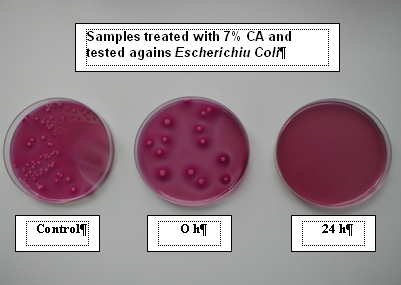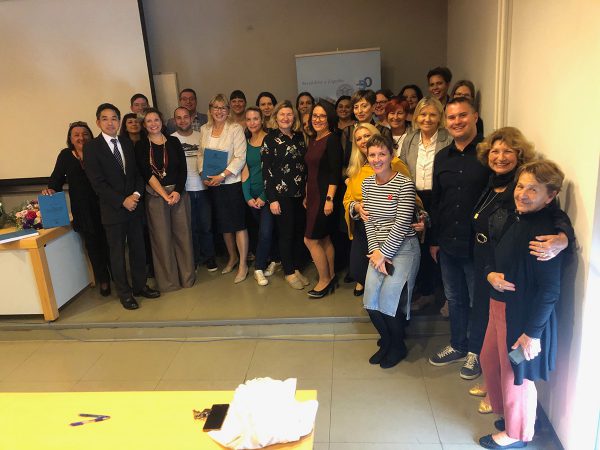Title: Alternative Environmentally Friendly Processes
& Methods of Cellulose Modification
Project funding: Ministry of Science, Education and Sports
Code: 117-1171419-1407
Project Leader: Prof. Drago Katović, Ph.D.
![]()
Topic 1.2: Antimicrobial Finishing:
Antimicrobial agents are used on textile materials in a variety of products for medical, technical or industrial purposes, as well as on clothes and decorative materials. Therefore antimicrobial finishing is increasingly present in the literature due to the high interest in the market.
Antimicrobial finishing is used for increasing protective and hygienically abilities of textiles which protect us from negative influences of the environment including the effect of microorganisms. Microorganisms can be divided into three categories: bacteria, fungi and algae. Natural fibers are more susceptible to fungi while protein fibers are more susceptible to bacterial growth.
The emphasis on antimicrobial modification of textile fibres or surfaces is on durability and health risks safety. The most important part is optimising the concentration of a used agent which has to be bonded to the textile material. In that way we can achieve durability of the treatment while its negative influence on the human skin is avoided.
Efficiency of this type of finishing was tested in different established microbiological laboratories. In most cases, the textile companies wishing to use antimicrobial products in their production won’t be able to test it in their own laboratories. Therefore we used microbiological laboratories of following institutions to test the microbiological efficiency:
- University of Zagreb, Medical School, Clinical Hospital Center, Zagreb
- Croatian National Institute of Public Health, Zagreb
- Institute of Public Health Dr. Andria Štampar, Zagreb

![]()

